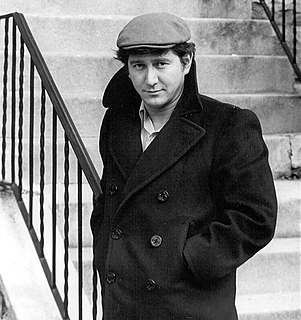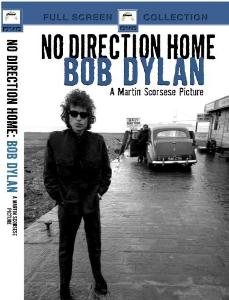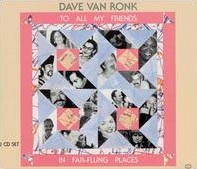
Philip David Ochs was an American songwriter and protest singer. Ochs was known for his sharp wit, sardonic humor, political activism, often alliterative lyrics, and distinctive voice. He wrote hundreds of songs in the 1960s and 1970s and released eight albums.

David Kenneth Ritz Van Ronk was an American folk singer. An important figure in the American folk music revival and New York City's Greenwich Village scene in the 1960s, he was nicknamed the "Mayor of MacDougal Street".

Thomas Richard Paxton is an American folk singer-songwriter who has had a music career spanning more than fifty years. In 2009, Paxton received a Grammy Lifetime Achievement Award. He is a music educator as well as an advocate for folk singers to combine traditional songs with new compositions.

John Gorka is a contemporary American folk musician. In 1991, Rolling Stone magazine called him "the preeminent male singer-songwriter of what has been dubbed the New Folk Movement."

Joan Baez/5 is a 1964 album by American folk singer Joan Baez. It peaked at number 12 on the Billboard 200 chart. The single "There But for Fortune" reached number 50 on the Billboard Hot 100 in the U.S. and became a top-ten single in the U.K.

No Direction Home: Bob Dylan is a 2005 documentary film by Martin Scorsese that traces the life of Bob Dylan, and his impact on 20th-century American popular music and culture. The film focuses on the period between Dylan's arrival in New York in January 1961 and his "retirement" from touring following his motorcycle accident in July 1966. This period encapsulates Dylan's rise to fame as a folk singer and songwriter where he became the center of a cultural and musical upheaval, and continues through the electric controversy surrounding his move to a rock style of music.
Harold Leventhal was an American music manager. He died in 2005 at the age of 86. Leventhal's career began as a song plugger for Irving Berlin and then Benny Goodman. While working for Goodman, he connected with a new artist, Frank Sinatra, booking him as a singer for a Benny Goodman event. Leventhal later managed The Weavers, Woody Guthrie, Pete Seeger, Alan Arkin, Judy Collins, Theodore Bikel, Arlo Guthrie, Joan Baez, Mary Travers, Tom Paxton, Don McLean and many others, and promoted major concert events in the genre, thus playing a significant role in the popularization and influence of American folk music in the 1950s and 1960s.

Paul Clayton was an American folksinger and folklorist who was prominent in the folk music revival of the 1950s and 1960s.
Troubadours of Folk is a five volume series of compact discs released by Rhino Records in 1992. The series documents several decades worth of "contemporary" folk music. The first three volumes focus on the American "folk revival" of the 1960s while the final two volumes focus on singer-songwriter music of the 1970s and 1980s. Because of "licensing restrictions" no songs by Bob Dylan could be included in the anthology. The series tends to focus on American folk music although not exclusively. Rhino later released a series of volumes titled Troubadours of British Folk.

The American folk music revival began during the 1940s and peaked in popularity in the mid-1960s. Its roots went earlier, and performers like Josh White, Burl Ives, Woody Guthrie, Lead Belly, Big Bill Broonzy, Billie Holiday, Richard Dyer-Bennet, Oscar Brand, Jean Ritchie, John Jacob Niles, Susan Reed, Paul Robeson, Bessie Smith, Ma Rainey and Cisco Houston had enjoyed a limited general popularity in the 1930s and 1940s. The revival brought forward styles of American folk music that had in earlier times contributed to the development of country and western, blues, jazz, and rock and roll music.
Gerdes Folk City, sometimes spelled Gerde's Folk City, was a music venue in the West Village, part of Greenwich Village, Manhattan, in New York City. Initially opened by owner Mike Porco as a restaurant called Gerdes, it eventually began to present occasional incidental music. It was first located at 11 West 4th Street, before moving in 1970 to 130 West 3rd Street. The club closed in 1987.
Danny Kalb is an American blues guitarist and vocalist. He was an original member of the 1960s group the Blues Project.

To All My Friends in Far-Flung Places is a 1994 album by Dave Van Ronk, the theme of which was to perform versions of songs written by people he knew.

What's That I Hear?: The Songs of Phil Ochs is a 1998 tribute compilation to the music of the late Phil Ochs. The various performers cover several generations of Ochs' admirers. All profits from the album's sales were divided equally between the non-profits, the ACLU Foundation of Southern California and Sing Out! Magazine.
"The House of the Rising Sun" is a traditional folk song, sometimes called "Rising Sun Blues". It tells of a person's life gone wrong in the city of New Orleans. Many versions also urge a sibling or parents and children to avoid the same fate. The most successful commercial version, recorded in 1964 by the British rock band The Animals, was a number one hit on the UK Singles Chart and in the US and Canada. As a traditional folk song recorded by an electric rock band, it has been described as the "first folk rock hit".
"There but for Fortune" is a song by American folk musician Phil Ochs. Ochs wrote the song in 1963 and recorded it twice, for New Folks Volume 2 and Phil Ochs in Concert. Joan Baez also recorded "There but for Fortune" in 1964, and her version of the song became a chart hit.

Phil Ochs: There but for Fortune is a documentary film on the life and times of folk singer-songwriter Phil Ochs. The film, released theatrically in January 2011, was written and directed by Kenneth Bowser. Its title is taken from one of Ochs' best known songs, "There but for Fortune" (1963).
"Old Blue" is an old folk song, believed to have originated from the minstrel shows of the late 19th century. A 1928 version by Jim Jackson, entitled "Old Dog Blue", appears on the Anthology of American Folk Music album. Since this early recording, a number of covers and variations of this song have been recorded. In his 1985 play, Fences, August Wilson uses Jim Jackson's version as a leitmotif, and the play's central character says his father originated the song.
A folk singer or folksinger or is a person who sings traditional or contemporary folk music.
The World Folk Music Association is a non-profit organization formed in 1983 by folk singer/songwriter Tom Paxton and Dick Cerri, a radio host from Washington D. C. The first chairman of the board was Paxton and Cerri served as president.









